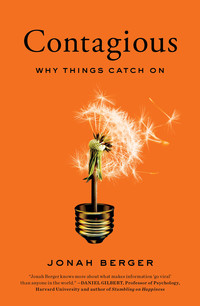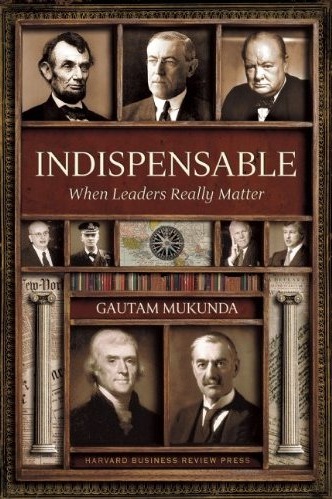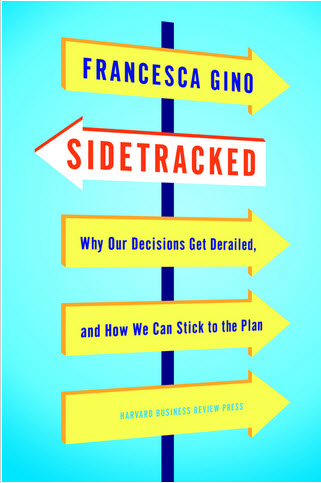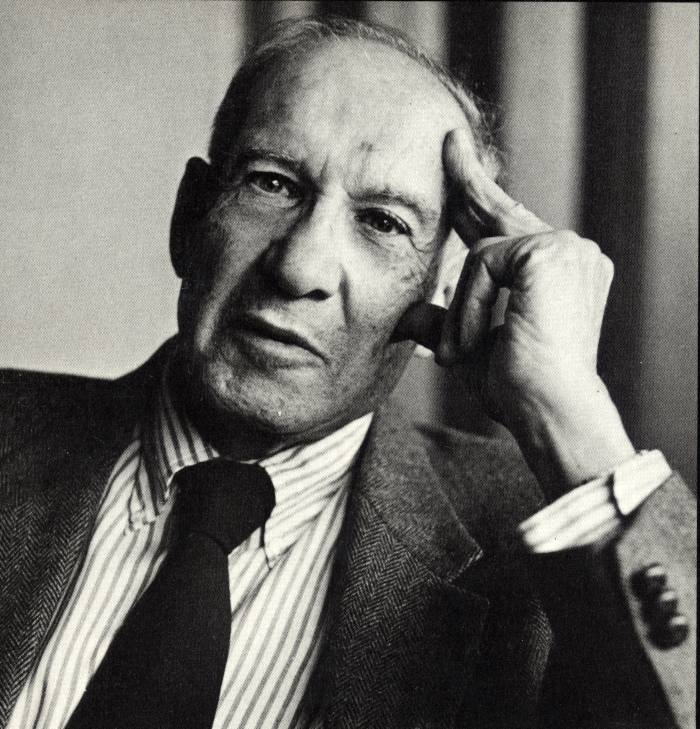What are the six steps to making your ideas contagious?
bsp; In his book Contagious: Why Things Catch On, Wharton business school professor Jonah Berger lays out the six key elements that make ideas and products catch on: 1) Social Currency: "We Share Things That Make Us Look Good" "Does talking about your product or idea make people look good? Can you find the inner remarkability? Leverage game mechanics? Make people feel like insiders?" 2) Triggers: "Top of Mind, Tip of Tongue" "Consider the context. What cues make people…
2 minutes
Gautam Mukunda of Harvard explains the secret to being a better leader
bsp; We all know leaders can make a difference. But social scientists have done the research and they disagree. For years they've been saying leaders don't matter. Huh? Gautam Mukunda, a professor at Harvard Business School and the author of Indispensable: When Leaders Really Matter, solved the puzzle. He figured out which leaders do and don't have an impact, why that's the case and what we can learn from them. I interviewed him about leadership and how we can all learn to be…
6 minutes
Checklist: What 9 things can help you make better decisions?
ancesca Gino is a professor at Harvard Business School and has done a number of fascinating studies in social psychology exploring the sometimes crazy things that influence your behavior and the biases the human mind seems inherently prone to. In her book Sidetracked: Why Our Decisions Get Derailed, and How We Can Stick to the Plan she compiles many of her findings and lays out a strategy for overcoming your brain's common errors so you can make better decisions. What are…
3 minutes
Interview – Harvard/MIT Lecturer Olivia Fox Cabane teaches you how to be more charismatic
ivia Fox Cabane is the author of The Charisma Myth. She's lectured on the subject at Harvard, Stanford, Yale, MIT, Google and the United Nations. I spoke with her about how charisma works, the science behind it and how anyone can become more influential. For brevity’s sake I’m only going to post edited highlights here. Subscribers to my free weekly newsletter get access to extended interviews. Join here. ——————————————— How does charisma work? Eric: In The Charisma Myth you break down charisma into presence, power,…
4 minutes
Should you “fake it until you make it”?
u like confidence. In fact, most of us have such a bias toward confidence we prefer it over actual expertise. Speaking first, speaking confidently and speaking often make you sound like a leader and the people who do that usually end up as the leader -- even if they don't know what they're talking about: Via The Invisible Gorilla: How Our Intuitions Deceive Us: As you’ve probably anticipated, in the actual experiment, the group leaders proved to be no more competent than anyone…
3 minutes
Effective Executive: 5 insights from the #1 management book
te Drucker's book The Effective Executive: The Definitive Guide to Getting the Right Things Done is one of my most frequent recommendations. Everyone can get something from it because it's not about the minutiae of business, it's about organizing your life so you can accomplish the things that are important. Drucker is probably the most influential writer on the subject of management. Why? One of the reasons is that he understood that the most important part of management is knowing yourself. What are the book's…
6 minutes
Howard Suber Of UCLA Film School Explains How To Tell A Story
bsp; Howard Suber is one of my mentors. He founded the graduate program I was in at UCLA and has taught literally thousands of students about the power of film and narrative structure. From his bio at UCLA: During his 40 years on the UCLA faculty, Howard Suber helped establish and also chaired the UCLA Film Archive, the Critical Studies and Ph.D. Programs, and the UCLA Producers Program. He is a former Associate Dean, recipient of UCLA’s Distinguished Teaching Award, and has been…
5 minutes
What are the four things your boss will never tell you about getting a raise or promotion?
bsp; 1) Stop thinking doing a good job is the most important thing Hard work isn’t all it’s cracked up to be. Performance is only loosely tied to who succeeds: Via Stanford business school professor Jeffrey Pfeffer's book Power: The data shows that performance doesn’t matter that much for what happens to most people in most organizations. That includes the effect of your accomplishments on those ubiquitous performance evaluations and even on your job tenure and promotion prospects. Research shows being liked affects performance reviews…
2 minutes








